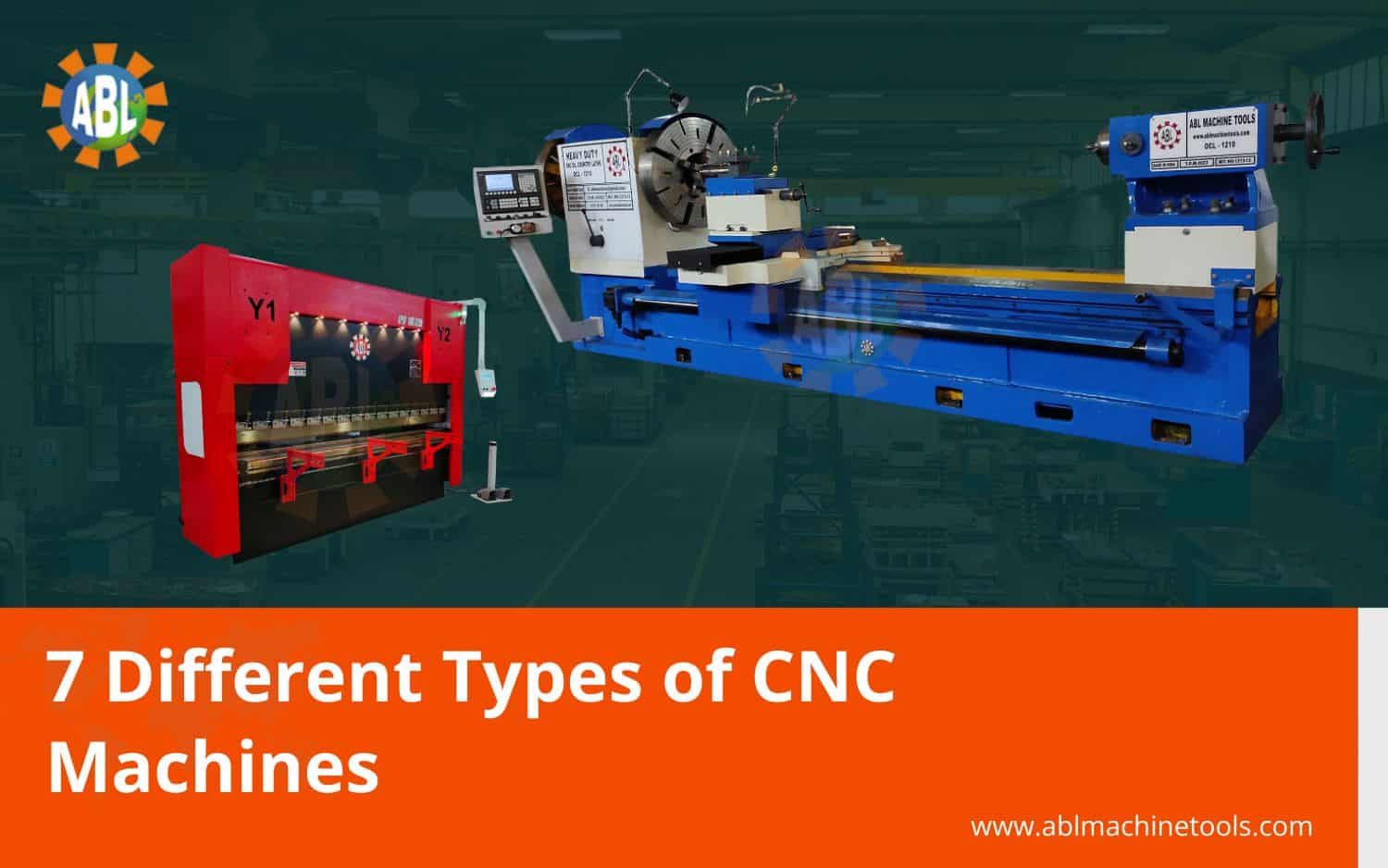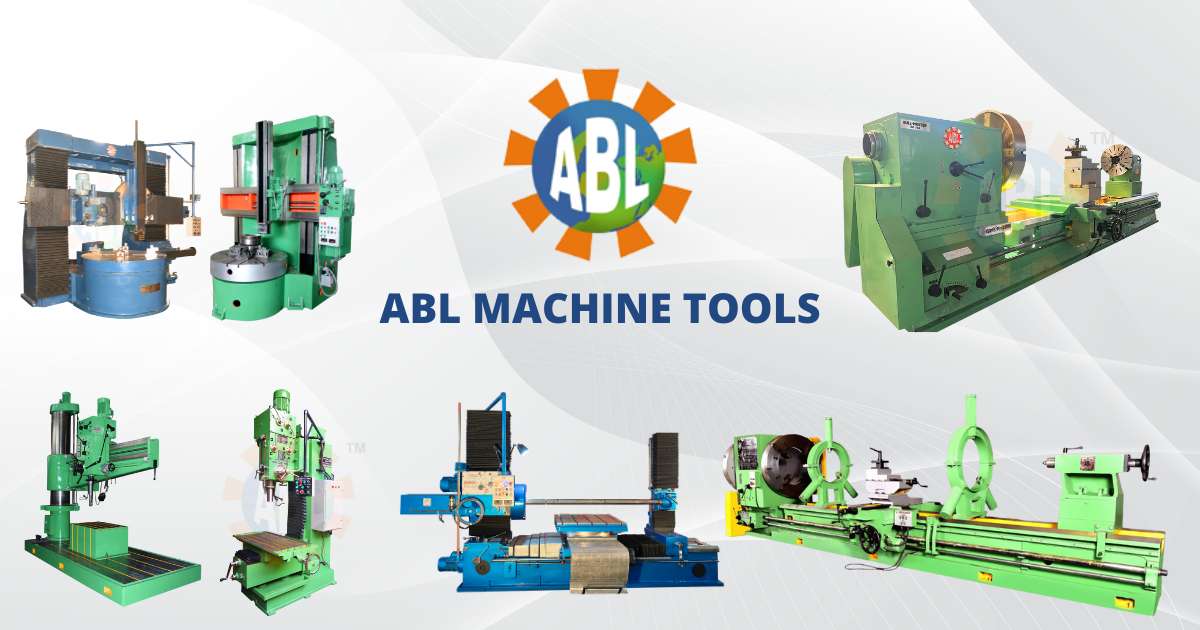
Walk into any modern workshop and you’ll likely see a CNC running. Whether it’s cutting, bending, turning, or shaping, CNC machines have become the backbone of today’s manufacturing setups. Ask anyone in machining, and they’ll tell you—manual tools just can’t keep up with the speed and accuracy CNC offers.
But CNC is a big umbrella term. There isn’t just one type of machine. Each kind serves a different role, solving different problems in sheet metal, automotive, aerospace, or even small fabrication shops. And if you’re thinking of exploring your options, it helps to actually know the types, their features, and where they’re used.
Here’s a breakdown of the 7 different types of CNC machines you’ll come across, and why they matter.
What Are CNC Machines?
CNC stands for Computer Numerical Control. In simple words, it means the machine is controlled by a computer program instead of purely manual input.
- You design a part (using CAD software).
- The computer generates instructions (CAM programs).
- The CNC machine executes those commands.
This process eliminates guesswork, brings repeatability, and allows workshops to create complex parts with minimal manual effort.
Companies like ABL Machine Tools, India design CNC machines with a focus on reliability and accuracy so that industries can trust their daily operations to these systems.
1. CNC Lathe Machines
One of the oldest and most widely used types. A CNC lathe machine rotates the workpiece against a cutting tool to produce cylindrical parts.
Features:
- Works with metals, plastics, and wood.
- High torque for cutting harder materials.
- Smooth finishes with minimal post-processing.
- Multiple axes for more complex cuts.
Applications:
- Automotive shafts
- Bushings
- Aerospace components
- General-purpose cylindrical parts
If you walk into any machine shop in India, chances are they have at least one CNC lathe. It’s not optional, it’s essential.
2. CNC Milling Machines
If lathes rotate the material, milling machines rotate the tool. Milling removes material using rotary cutters and can shape flat, angled, or irregular surfaces.
Features:
- Vertical and horizontal configurations.
- Multi-axis (3, 4, or 5-axis) options for complex designs.
- Excellent accuracy for detailed parts.
- Compatible with metals, plastics, and composites.
Applications:
- Gear housings
- Die molds
- Prototypes
- Engine parts
CNC milling machines are popular in industries that need accuracy and flexibility. Aerospace and die-making industries rely heavily on milling.
3. CNC Drilling Machines
Simple in concept, but highly valuable. CNC drilling machines are designed for producing precise holes at exact locations and depths.
Features:
- Programmable hole patterns.
- Adjustable speeds for different materials.
- Multi-spindle designs available.
- Reduced cycle time compared to manual drilling.
Applications:
- PCB manufacturing
- Automotive brake drums and discs
- Metal fabrication shops
- Furniture manufacturing
Many people underestimate drilling, but without accurate holes, assembling complex products becomes a headache.
4. CNC Plasma Cutting Machines
If your workshop handles sheet metal, plasma cutting saves huge amounts of time. CNC plasma machines cut electrically conductive materials using a jet of hot plasma.
Features:
- Rapid cutting speed.
- Works on steel, stainless steel, and aluminum.
- Smooth edges with little finishing required.
- Can cut both thin and thick sheets.
Applications:
- Sheet metal fabrication
- Heavy machinery industries
- Automotive chassis cutting
- Decorative metalwork
Plasma cutting is valued for its balance of speed and accuracy, especially for larger fabrication shops.
5. CNC Laser Cutting Machines
Like plasma, but with even more precision. CNC laser cutting machines use concentrated laser beams to cut or engrave metals and non-metals.
Features:
- High accuracy and very fine detail.
- Great for thinner materials.
- Can perform engraving as well as cutting.
- Clean edges with minimal burr.
Applications:
- Jewelry manufacturing
- Electronics and small components
- Decorative panels
- Precision sheet metal industries
It’s not always about heavy cutting. Sometimes, small intricate work is just as valuable, and this is where CNC laser machines shine.
6. CNC Press Brakes
Where cutting ends, bending begins. CNC press brakes are critical for bending sheets into required shapes. With CNC controls, bending angles are precise and repeatable.
Features:
- Programmable angles and strokes.
- Option for hydraulic or hybrid systems.
- Multi-axis back gauge control for accuracy.
- Safe operation with guards and automation.
Applications:
- Electrical enclosures
- Automotive body parts
- Structural steel bending
- HVAC duct systems
Press brakes are heavy-duty machines found in most fabrication setups, and CNC features have taken them to the next level in terms of consistency.
7. CNC Grinding Machines
Often used when surface finish matters more than material removal speed. CNC grinders shape and finish parts by abrasion rather than cutting.
Features:
- Precision grinding for smooth finishes.
- Automated wheel dressing.
- Multiple axis options.
- Works on hardened materials where lathes or mills aren’t effective.
Applications:
- Tool manufacturing
- Bearing components
- Aerospace parts requiring tight tolerances
- Mold and die finishing
Grinding machines don’t run in every workshop, but where precision is crucial, they play an irreplaceable role.
How CNC Machines Have Changed Indian Industry
Walk back 25 years, and manual machines dominated Indian factories. Today, CNC machines have reshaped how parts are produced.
- Faster Production: Projects that used to take days can be completed in hours.
- Consistency: Every part can meet the same tolerance.
- Skilled Labor: Operators now focus more on programming than physical brute work.
- Export-Readiness: Indian workshops can cater to international standards.
Suppliers like ABL Machine Tools, India, have helped make CNC accessible to workshops big and small across the country, which is one reason why industries from automotive to defense are investing heavily in CNC.
Common Mistakes People Make When Choosing CNC Machines
It’s worth pointing out mistakes because I’ve seen them repeated:
- Assuming one CNC machine can handle everything. They’re specialized tools.
- Buying oversized machines that mostly stay underused in smaller shops.
- Ignoring after-sales support and focusing only on the machine’s look.
- Not training operators properly, which leads to breakdowns.
A supplier like ABL Machine Tools often helps customers avoid these mistakes by recommending the right machine for the right job.
How to Pick the Right CNC Machine for Your Work
Since each machine serves different purposes, the choice depends on your workload.
- If you’re making cylindrical parts → CNC lathe.
- If your parts involve shaping and cutting multiple sides → CNC milling.
- If you cut lots of sheets → CNC plasma or laser cutting machine.
- If bending is constant → CNC press brake.
- If finishing is crucial → CNC grinding machine.
Knowing your dominant task helps in picking the right one. Chasing “all-rounders” often leads to wasted money.
Why Indian CNC Machines Are a Smart Choice
Some people believe imported automatically means better. But Indian-made CNC machines have caught up fast in terms of design and quality. And they’re far easier to maintain.
With suppliers like ABL Machine Tools, India, workshops get:
- Quicker service response
- Spare parts within days instead of months
- Machines designed for Indian working conditions
- Training and consultation locally
That kind of reliability often makes Indian CNC machines a smarter investment than imports.
The Future of CNC Machines in India
Looking ahead, CNC adoption is only going to increase. With industries scaling under “Make in India” and growing exports, demand for tighter tolerances and faster turnaround is rising.
We’ll likely see:
- More automation in CNC press brakes and lathes.
- Sensors and data systems added for monitoring.
- CNC machines working in combination—cutting, bending, finishing under interconnected systems.
Manufacturers like ABL Machine Tools are already shaping this direction by blending durability with accessible technology.
CNC machines—whether lathes, mills, or press brakes—aren’t just tools anymore. They’re the backbone of Indian workshops that want to deliver speed, accuracy, and repeatability.
Understanding the 7 different types—lathe, milling, drilling, plasma cutting, laser cutting, press brakes, and grinding—gives you clarity on which type of CNC fits your work best.
With reliable suppliers like ABL Machine Tools, India, workshops don’t just get a machine, they get long-term support. And that’s what keeps production moving smoothly day after day.
What are CNC machines?
CNC machines are computer-controlled tools that automate machining processes like cutting, drilling, bending, or finishing. They improve accuracy, speed, and repeatability in manufacturing.
What are the main types of CNC machines?
The main types include CNC lathe machines, CNC milling machines, CNC drilling machines, CNC plasma cutting machines, CNC laser cutting machines, CNC press brakes, and CNC grinding machines.
What are the advantages of using CNC machines?
CNC machines deliver precision, repeatability, faster production, reduced human error, and the ability to manufacture complex shapes that are difficult to achieve manually.
In which industries are CNC machines commonly used?
They are widely used in automotive, aerospace, metal fabrication, electronics, tool manufacturing, and many general engineering workshops.
Why are CNC machines important in India’s manufacturing sector?
CNC machines help Indian industries improve accuracy, scale production, and meet global standards. Local suppliers like ABL Machine Tools also make them more accessible by providing durable machines with reliable support.

